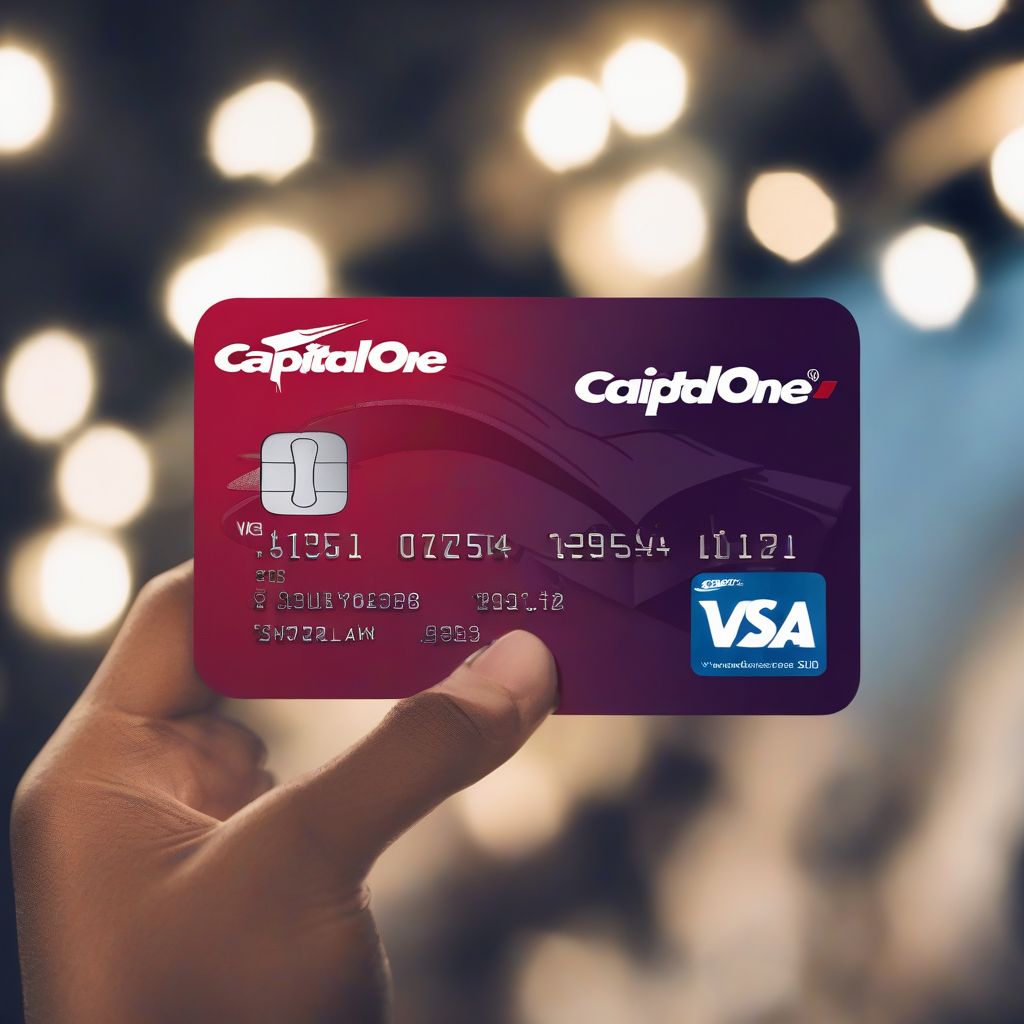In today’s financial landscape, establishing a solid credit history is crucial, especially for students transitioning into adulthood. A Capital One Student Credit Card can be a valuable tool in this journey, providing a stepping stone to building responsible credit habits and accessing financial independence. This article delves into the world of Capital One student credit cards, exploring their features, benefits, and factors to consider before applying.
Understanding Credit Cards and Credit Scores
Before diving into the specifics of Capital One student credit cards, let’s establish a foundational understanding of credit cards and credit scores. A credit card is essentially a short-term loan that allows you to make purchases and pay for them later. Your credit score, a three-digit number typically ranging from 300 to 850, reflects your creditworthiness or how likely you are to repay borrowed money responsibly.
A higher credit score signifies financial trustworthiness to lenders, potentially granting access to lower interest rates on loans, favorable credit card terms, and even better rental opportunities. Building a positive credit history early on through responsible credit card usage can pave the way for a secure financial future.
Capital One Student Credit Cards: An Overview
Capital One offers a range of credit cards designed specifically for students, catering to various needs and credit profiles. These cards typically come with features such as:
- No annual fees: Eliminating the burden of annual fees, making them budget-friendly for students.
- Rewards programs: Earning cash back, miles, or points on purchases, providing incentives for responsible spending.
- Credit-building opportunities: Reporting your payment history to major credit bureaus, allowing you to build a positive credit track record.
Types of Capital One Student Credit Cards
Capital One offers several student credit card options, each with its own set of features and benefits:
- Capital One Quicksilver Student Cash Rewards Credit Card: This card offers a flat-rate cash back on all purchases, making it a straightforward option for students who prefer simplicity.
- Capital One Journey Student Rewards Credit Card: Designed for students building their credit, this card offers cash back rewards and the potential for a credit limit increase after making the first five monthly payments on time.
Benefits of Capital One Student Credit Cards
Obtaining a Capital One student credit card can offer several advantages:
- Building Credit: Responsible usage, including making on-time payments and keeping your credit utilization low, allows you to build a positive credit history.
- Earning Rewards: Many Capital One student credit cards offer rewards programs, allowing you to earn cash back or other perks on your spending.
- Emergency Fund: Credit cards can serve as a safety net during unexpected financial emergencies, providing a temporary line of credit.
- Financial Independence: Establishing credit in your own name helps foster financial independence and prepares you for future financial endeavors.
fastnovels.net/wp-content/uploads/2024/08/capital-one-student-credit-card-66c5b3.jpg" alt="Capital One student credit card" width="1024" height="1024">Capital One student credit card
Eligibility and Application Process
To be eligible for a Capital One student credit card, you typically need to be:
- At least 18 years old
- Enrolled in a U.S.-based college or university
- Have a valid Social Security number
The application process is generally straightforward and can often be completed online. Capital One will consider factors such as your credit history, income, and debt-to-income ratio when evaluating your application.
Choosing the Right Capital One Student Credit Card
Selecting the best Capital One student credit card depends on your individual needs and spending habits. Consider factors such as:
- Rewards Program: Determine which rewards program aligns best with your spending patterns, whether it’s cash back, miles, or points.
- Annual Percentage Rate (APR): Compare APRs across different cards as this directly impacts the cost of borrowing if you carry a balance.
- Credit Limit: Choose a card with a credit limit that suits your spending needs while encouraging responsible usage.
Responsible Credit Card Use
While credit cards can be powerful financial tools, it’s crucial to use them responsibly. Here are some tips for responsible credit card usage:
- Pay Your Bills on Time: Late payments can negatively impact your credit score and result in late fees.
- Keep Your Credit Utilization Low: Aim to keep your credit utilization (the amount of credit you’re using compared to your credit limit) below 30%.
- Create a Budget: Track your spending and create a budget that aligns with your income and expenses.
- Review Your Statements Regularly: Check your credit card statements for any errors or fraudulent activity.
Conclusion
Capital One student credit cards can be valuable assets for students looking to establish a strong credit history and build financial independence. By understanding the features, benefits, and responsible usage practices associated with these cards, students can make informed decisions that pave the way for a secure financial future. Remember to explore different card options, compare terms, and choose a card that aligns with your individual needs and financial goals.
This article aims to provide general information and should not be considered financial advice. We encourage you to conduct thorough research and consult with a qualified financial advisor to make informed decisions regarding your personal finances. For further exploration, explore our website for insights on investing, market trends, and financial planning tools.
